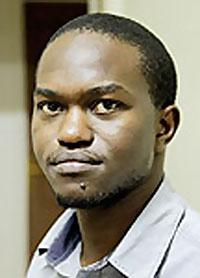Last week three East African leaders met in Entebbe, Uganda and discussed several issues and later made some interesting pronouncements. We were told about the plans to have a better railway, a pipeline and even an EAC identification card among other things.


Last week three East African leaders met in Entebbe, Uganda and discussed several issues and later made some interesting pronouncements. We were told about the plans to have a better railway, a pipeline and even an EAC identification card among other things.
The most interesting thing about the meeting between the presidents of Uganda, Kenya and Rwanda was that at the end each president was ‘assigned’ a particular issue to follow up in. I cannot tell whether these assignments were informed by the different leaders’ skills or it was simply a case of making sure each of them has something to report on the next time they meet.
Well this got me thinking, we can actually achieve this elusive integration much faster if we embraced a certain level of specialisation in the way we do certain things. I often interact with East Africans from different countries and we even have a closed forum on Facebook where we regularly discuss issues happening in the community.
In all these interactions it is very common to hear statements of concession where we all agree that Kenyans, Ugandans, Rwandans, Tanzanians or Burundians are better at doing something as compared to others. In other words, each particular group has a skill that the other could make use of.
And by the way my revelation should not be news anyway. The other day Kenya’s Standard newspaper run a story about how Ugandan girls were taking over the jobs of Kenyan waitresses in the border towns apparently because they know how to treat customers better than the Kenyan ladies.
I also saw a Ugandan newspaper reporting that there were plans to hire Tanzanian and Kenyan Swahili teachers. Such a move will mean that Ugandans will get to learn more about Tanzanians and Kenyans just by taking Swahili lessons.
Many people in the hotel business in Uganda and to some extent in Rwanda have hired Kenyan managers because this seems to be the Kenyans’ forte. Whatever it is that they learn at Utalii College has made them very marketable as hotel managers but also conduits of Kenyan cultural aspects to Uganda and Rwanda.
Meanwhile in Kigali if your car breaks down and you head to Gatsata where there are several garages for repair, you will be treated to a lot of funny accented and broken Kinyarwanda. This is because most of the mechanics there are Ugandans (Baganda to be particular).
This weekend all sports talk has been the Kenyan team at the Rugby World Cup Sevens. A quick look on the social media streets and you will clearly know that the Kenyans are receiving more coverage than even the Kagame Cup in Darfur.
This is because when it comes to Sevens rugby in East Africa, other countries do not even want to mention that they have rugby as a sport. It would therefore not be farfetched for other East African countries to hire Kenyan rugby coaches.
We could also just send more of our potential long distance runners to train from Kenya. After all Uganda’s only living Olympic Gold medallist, Stephen Kiprotich was trained there too. Why not send the Burundian long distance runners as well.
Other EAC cities could even borrow the skills of the people who have ensured that Kigali is a city every visitor praises as far as cleanliness and orderliness are concerned. The senior military leadership in Uganda was largely formed around those who received training in Tanzania and returned to spearhead liberation struggles.
Some people may choose to look at this as one group of people taking the jobs of others but I prefer to look at it as specialisation that bears very nice integration fruits. We need to benefit from the best skills in the region so as to develop faster but more importantly integrate faster.
In other words each of us has something unique that we can offer and there should be more efforts aimed at sharing these goodies. This kind of sharing ensures skills transfer as well as cultural transfer.
My mother often told me about how her brother, my uncle survived being robbed by rogue Tanzanian soldiers during the war that ousted Idi Amin. The magic was that under the old EAC he had worked in Tanzania for the East African Railways for so long that he spoke flawless (often considered Tanzanian) Swahili.
Once stopped at a check point, he could easily tell that the soldiers were Tanzanian and a simple chat in ‘their’ language broke the ice and earned him his freedom. In conclusion, let us mix a little more, we only stand to benefit.
Blog: www.ssenyonga.wordpress.comTwitter: @ssojo81


